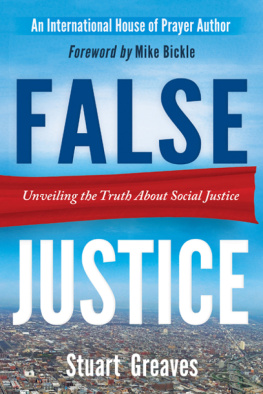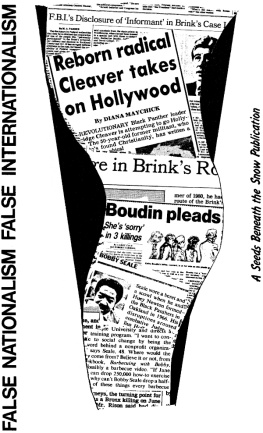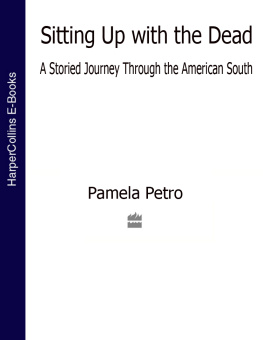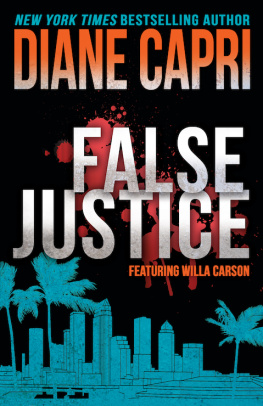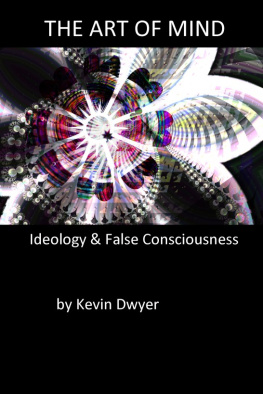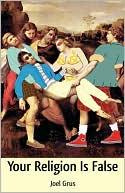Eight Myths that Convict the Innocent
Revised Edition
False Justice
Compelling and engagingly written, this book by former Attorney General of Ohio, Jim Petro, and his wife, writer Nancy Petro, takes the reader inside actual cases, summarizes extensive research on the causes and consequences of wrongful conviction, and exposes eight common myths that inspire false confidence in the justice system and undermine reform. Now newly published in paperback with an extensive list of web links to wrongful conviction sources internationally, False Justice is ideal for use in a wide array of criminal justice and criminology courses.
Jim Petro is a former elected Attorney General of Ohio. Committed to a strong law-and-order platform, he launched a breakthrough effort that added 210,000 criminal DNA profiles to the CODIS database, solving countless cold cases but also revealing wrongful convictions. He retired from public service in 2013 as Chancellor of Ohios public colleges and universities to focus on criminal justice reform and advocacy.
Nancy Petro pursued a career in marketing, publishing, and business management before focusing in 2008 on writing and advocating for criminal justice reform.
Titles of Related Interest
Criminological Perspectives on Race and Crime, Second Edition, Shaun L. Gabbidon
Lifers: Seeking Redemption in Prison, John Irwin
A Theory of African American Offending: Race, Racism and Crime, James D. Unnever and Shaun L. Gabbidon
Girls with Guns, France Winddance Twine
Beyond the Prison Industrial Complex, Kevin Wehr and Elyshia Aseltine
Race, Law, and American Society: 1607-Present, Gloria J. Browne-Marshall
Research Methods in Crime and Justice, Brian L. Withrow
Wrongful Convictions and Miscarriages of Justice: Causes and Remedies in North American and European Criminal Justice Systems, C. Ronald Huff and Martin Killias
The Pains of Mass Imprisonment, Benjamin Fleury-Steiner and Jamie G. Longazel
Wrongful Conviction and Criminal Justice Reform, Marvin Zalman and Julia Carrano
Questioning Capital Punishment, James R. Acker
Revised edition published 2015
by Routledge
711 Third Avenue, New York, NY 10017
and by Routledge
2 Park Square, Milton Park, Abingdon, Oxon, OX14 4RN
Routledge is an imprint of the Taylor & Francis Group, an informa business
2015 Taylor & Francis
The right of Jim Petro and Nancy Petro to be identified as authors of this work has been asserted by them in accordance with sections 77 and 78 of the Copyright, Designs and Patents Act 1988.
All rights reserved. No part of this book may be reprinted or reproduced or utilized in any form or by any electronic, mechanical, or other means, now known or hereafter invented, including photocopying and recording, or in any information storage or retrieval system, without permission in writing from the publishers.
Trademark notice: Product or corporate names may be trademarks or registered trademarks, and are used only for identification and explanation without intent to infringe.
First edition published in 2010 by Kaplan Publishing
Library of Congress Cataloging-in-Publication Data
Petro, Jim, 1948 author.
False justice : eight myths that convict the innocent / by Jim Petro and
Nancy Petro. Revised Edition.
pages cm
Includes bibliographical references and index.
1. Judicial errorUnited States. 2. False imprisonmentUnited States. 3. Criminal
justice, Administration ofUnited States. I. Petro, Nancy, author. II. Title.
KF9756.P47 2014
345.730122dc23
2013050310
ISBN: 978-1-138-78299-0 (hbk)
ISBN: 978-1-138-78300-3 (pbk)
ISBN: 978-1-315-76886-1 (ebk)
Typeset in Minion
by Apex CoVantage, LLC
Original publisher: False Justice: Eight Myths that Convict the Innocent, Kaplan Publishing 2010
Our system of criminal justice is best described as a search for truth.
U.S. Attorney General Janet Reno
WHEN FALSE JUSTICE WAS first published in January 2011, Nancy and I hoped to share our journey of awakening to wrongful conviction (convicting the innocent) not only with professionals working in the criminal justice system, but also with students, who in studying criminology, law, and a wide array of academic disciplines, soon will have impact on the justice system, conventional wisdom, and public policy. We are delighted to have the opportunity to partner with Routledge, a global publisher of quality academic books, in bringing this revised edition of False Justice to students and avid learners internationally.
While we did not write a textbook per se, we were thrilled when teachers, instructors, and college and university professors began to assign False Justice in criminology, law, sociology, public administration, and other courses of study. False Justice has been utilized in ways we never imagined, from use as a wrongful conviction primer for law and graduate law students working for their university-affiliated Innocence Projects, to inclusion in police training in Rwanda.
False Justice is a short enough read to fit into many course syllabuses and can set the stage for invigorated discussion and study over a wide range of topics including crime, justice, injustice, punishment, ethics, and public policy. The book can elevate interest and excitement in various course subjects through its honest peering into the real workings of police, investigators, interrogators, criminologists, sociologists, forensic scientists, snitches, prosecutors, defense attorneys, judges, jurors, legislators, and public policy shapers.
C. Ronald Huff, Professor Emeritus of Criminology, Law and Society at the University of California, Irvinea Fellow and Past President of the American Society of Criminology and a pioneer in recognizing and researching the scope and causes of wrongful convictionhas used the book the past two years with 100+ undergrads each time. The book is an excellent fit for my course and the students enjoy it as well. Its a good combination of scholarship and first-hand experience with specific cases in the criminal justice system that help students understand how errors can occur, he explains. I recommend the book for courses on wrongful convictions, miscarriages of justice, and other general courses on the criminal justice system, because students need to be taught not just the idealistic way in which the system is supposed to work but also the problems we have in realizing those ideals.
Professor Emeritus in Criminal Justice at Indiana University, Hal Pepinsky, said, for any criminology or criminal justice course[ False Justice ] is a rare gem in critical writing about criminal justice. Spread the word.
The consistent feedback that we have received from faculty and students is that the book is powerful, important, fast-paced, compelling, fascinating, disturbing, and enlightening. Students have emailed to tell us that this was one text they actually enjoyed. Many readers have called it a page-turner and said it should be mandatory reading for those in the criminal justice system and for citizens of all walks.



